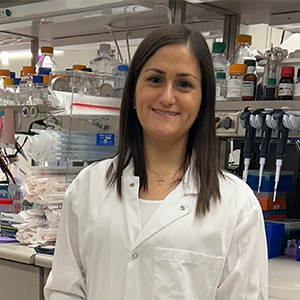-
Science Saturday: Nanopore sequencing method rapidly detects, identifies antibiotic-resistant microbes, Mayo Clinic research shows

A growing number of people are dying from antibiotic-resistant infections. These infections are fueled by microbial species that are mutating to evade the drugs developed to destroy them. More than 1.2 million people worldwide died in 2019 from antibiotic-resistant infections.
In response, a team of researchers from Mayo Clinic’s Center for Individualized Medicine has developed a sequencing technology to rapidly detect and identify microbes and antibiotic-resistant phenotypes in a single test. The innovative nanopore sequencing method is published in Surgery and mSphere,
“We demonstrated that nanopore sequencing can be used to predict infections within hours of sample collection and days before patients begin displaying symptoms," says Emma Whittle, Ph.D., a research fellow within the Department of Surgery, and lead author of the study.
"This could help prevent life-threatening infections by reducing diagnostic time from days to just hours,” Dr. Whittle says. “It could also enable clinicians to better tailor antibiotics to infections.”
Nanopore sequencing can analyze any length of DNA or RNA. Furthermore, the detection of microbial DNA/ RNA can be performed at any point during the sequencing run, allowing for real-time microbial diagnostics.
For the study, the scientists conducted nanopore sequencing to identify microbial species and antibiotic-resistant phenotypes in bile samples from patients undergoing pancreatic head resection surgery. Surgical site infections are a common complication, affecting up to 45% of patients undergoing the procedure. These infections can significantly influence a patient's outcome.
"We were able to identify which patients had infectious bile and were at risk of a surgical site infection with 100% accuracy, compared to current standard clinical techniques," Dr. Whittle says. "Our technique also improved detection of fungal species and increased the total number of microbial species and resistant phenotypes detected, compared to standard clinical practices."
“We demonstrated that nanopore sequencing can be used to predict infections within hours of sample collection and days before patients begin displaying symptoms. This could help prevent life-threatening infections by reducing diagnostic time from days to just hours."
- Emma Whittle, Ph.D.
Standard clinical techniques include growing bacteria in a culture dish, which can take up to 72 hours. Meanwhile, patients often begin a preventive cocktail of antibiotics in hopes that at least one will be effective. But the antibiotics also kill off good bacteria in the gut, which support the immune system, help with digestion and control inflammation.
Surprise finding revealed
What surprised the team was that antibiotic resistance genes were detected in all the infectious bile samples.
"Our theory is that the bacteria are present in the gut as part of the gut microbiota, and when the patients undergo surgery, this gets disrupted and some of the bacteria escape into the bile," explains Dr. Whittle.
"The detection of antibiotic-resistant genes in all our infectious bile samples suggests that all the patients in our study naturally harbor antibiotic resistance in their gut microbiota. These antibiotic resistant bacteria could also escape into the blood and elsewhere and potentially cause life-threatening sepsis."
Dr. Whittle says the sequencing strategy is not limited to patients with pancreatic cancer.
"It may be used for all patients at risk of infection or who are displaying signs of infection. It is also not limited to bacteria, and can be used to diagnose viral, fungal, or parasitic infections as well," Dr. Whittle explains.
Learn more
Read more stories about advances in individualized medicine.
Register to get weekly updates from the Mayo Clinic Center for Individualized Medicine blog.
Join the conversation
For more information, visit Mayo Clinic Center for Individualized Medicine, or Twitter at @MayoClinicCIM.

Related Articles







